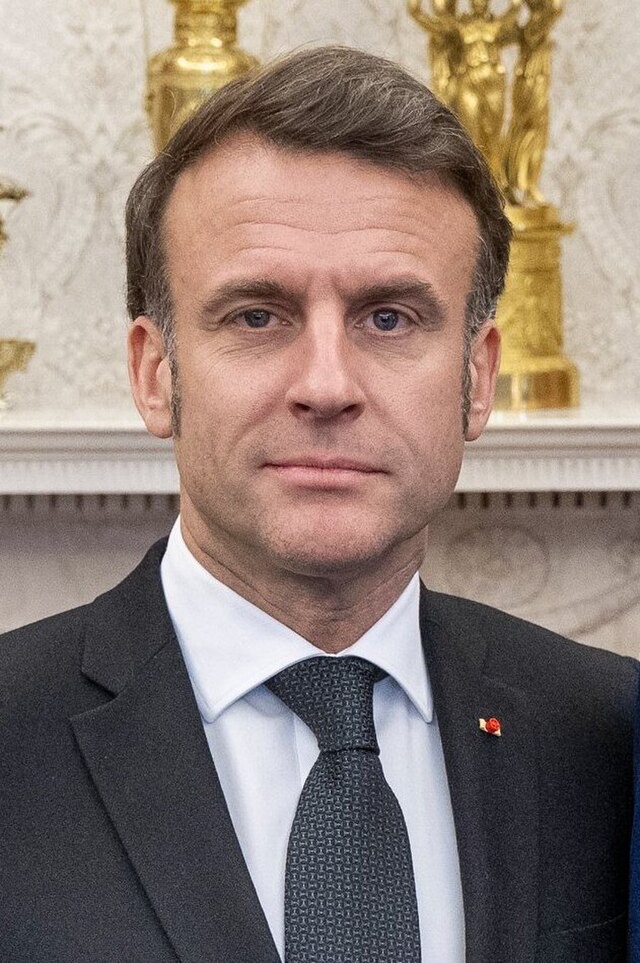President Emmanuel Macron has declared that European freedom faces its gravest threat since the Second World War, announcing €6.5 billion in additional military spending over the next two years as France prepares to counter unprecedented dangers from Russia, terrorism and nuclear proliferation.
In his traditional address to the military on the eve of Bastille Day, the French president proclaimed that “since 1945, freedom has never been so threatened, and never so seriously” whilst outlining sweeping defence spending increases at the Hôtel de Brienne in Paris on Sunday.
The French leader said the country would aim to spend €64 billion annually on defence by 2027, the final year of his second term, effectively doubling the €32 billion spent when he assumed office in 2017.
We are experiencing a return to the fact of a nuclear threat, and a proliferation of major conflicts,” Mr Macron warned. “To be free in this world, we must be feared. To be feared, we must be powerful.”
The announcement comes amid heightened tensions with Russia over Ukraine and growing uncertainty about American commitment to European security, with Mr Macron specifically citing that “the United States has added a form of uncertainty” to Europe’s strategic landscape.
The French president ordered the country’s top military and defence officials to initiate a “strategic dialogue” with European partners about extending the protective role of France’s nuclear arsenal across the continent.
In an exceptional development just days before the speech, France and Britain signed the historic Northwood Declaration, agreeing to coordinate their independent nuclear deterrents for the first time. British Prime Minister Keir Starmer called the agreement “truly historic” during a joint press conference with Mr Macron.
From today, our adversaries will know that any extreme threat to this continent would prompt a response from our two nations,” Mr Starmer declared. “There is no greater demonstration of the importance of this relationship.”
General Thierry Burkhard, head of the French military, outlined extensive Russian threats beyond Ukraine, warning that Moscow is disrupting satellite trajectories, conducting undersea infrastructure sabotage, and leading disinformation campaigns across France and Africa.
Russian attack submarines penetrate into the North Atlantic and the Mediterranean, and Russian military planes interact frequently with other aircraft over the Black Sea, Syria, the Mediterranean and the North Atlantic,” General Burkhard said on Friday.
The increased defence spending comes despite France’s challenging budgetary situation, with the country struggling to reduce massive national debts whilst facing pressure from right-wing parties supporting greater military expenditure and left-wing parties accusing the government of sacrificing social welfare.
Mr Macron insisted France could find the necessary funds, with Prime Minister François Bayrou declaring the defence budget “sacrosanct” and exempt from budgetary cuts ahead of Tuesday’s 2026 budget plan announcement.
Defence Minister Sébastien Lecornu warned in an interview with La Tribune Dimanche that France risked falling behind in “disruptive technologies,” specifically citing quantum computing developments by major powers.
“Big powers and certain proliferating countries are working secretly on quantum computers… that will be capable tomorrow of revolutionising the battlefield,” Mr Lecornu said. “Do we want to stay in the game?”
The minister highlighted urgent needs including ground-to-air defences, ammunition, electronic warfare capabilities and space technology, whilst emphasising France’s commitment to technological sovereignty in quantum computing and artificial intelligence.
Mr Macron’s speech coincided with expectations that US President Donald Trump would make an announcement about Russia on Monday, with NATO’s secretary general travelling to Washington for two days of talks. Mr Trump recently announced plans to sell NATO allies weaponry for transfer to Ukraine.
The French president recently spoke with Russian President Vladimir Putin for the first time in three years but remains widely criticised in Russia for his vocal support of Ukraine. The Kremlin maintains the conflict resulted from Western countries ignoring Russia’s security interests.
Beyond military hardware, Mr Macron cited additional threats including online disinformation campaigns by foreign governments and propaganda operations targeting children in what he called “the screen era.
The strategic dialogue on nuclear cooperation marks a significant shift in European defence thinking, with France spending approximately €5.6 billion annually maintaining its 290 submarine and air-launched nuclear weapons, the world’s fourth-largest arsenal.
Mr Macron emphasised that the nuclear cooperation committee created with Britain would send a vital message: “The decision is that we don’t exclude the coordination of our respective deterrents. It’s a message that our partners and adversaries must hear.”
The spending increases reflect France’s determination to maintain strategic autonomy whilst strengthening European defence capabilities as traditional security arrangements face unprecedented challenges.
Follow for more updates on Britannia Daily



